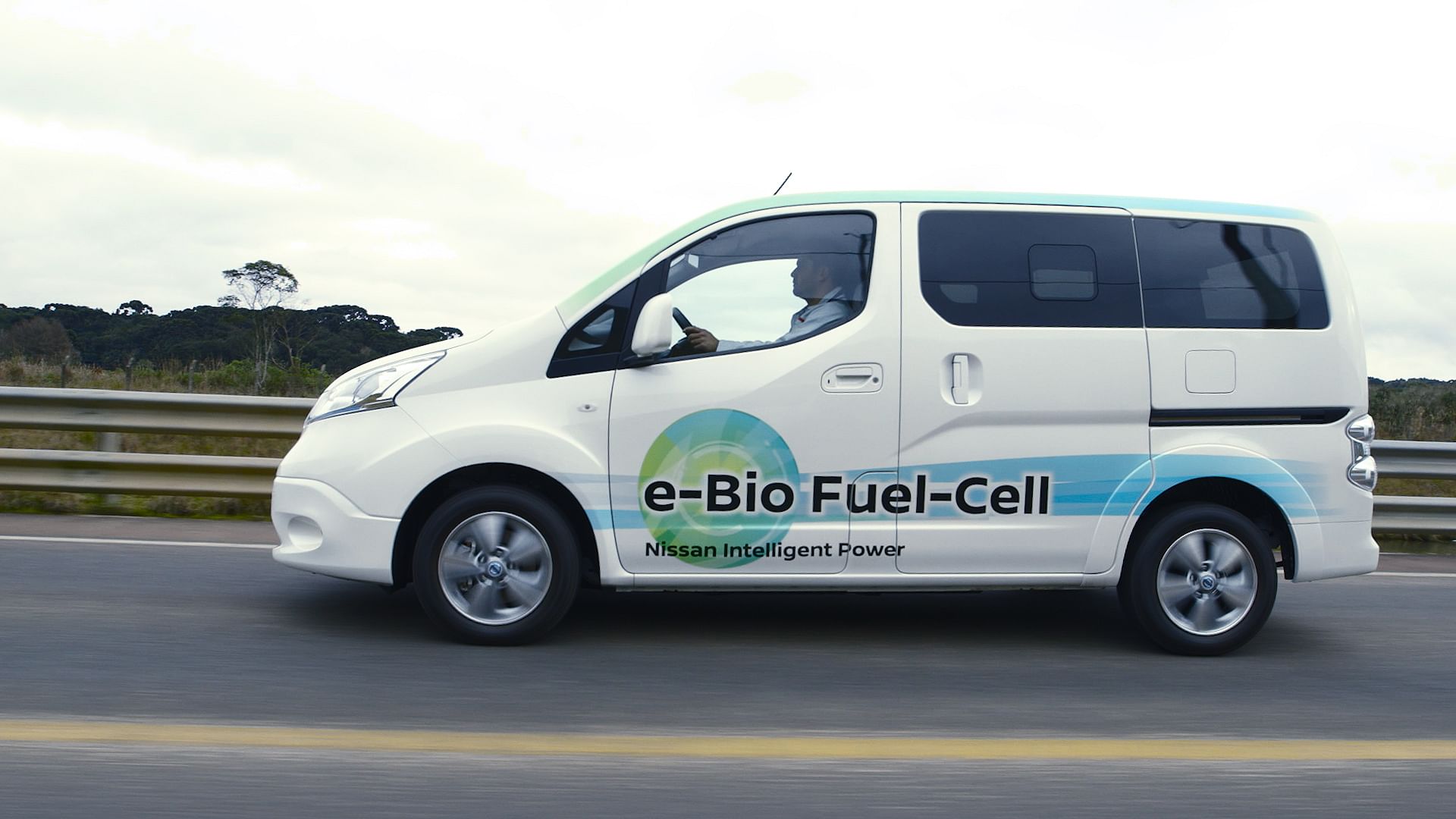How ethanol could change the future of fuels
Unlike hydrogen, with its explosive properties, ethanol is just as easy to handle as today's liquid fuels.
When the experimental Airlander airship – the world’s largest aircraft – took a nosedive at Cardington on a test flight the other week, there’s a reason why it didn’t do so in a fiery ball.
It’s filled with helium, an inert, lighter-than-air gas whose most sinister effect is making your voice squeaky, as opposed to hydrogen, the lightest element whose sometimes troublesome characteristic is its explosiveness when exposed to a naked flame. Or perhaps some sunshine. Or sometimes just for the fun of it.
The excellent thing about hydrogen, mind, is that when it’s combusted it gives off water, which is not, unlike conventional fuels, a greenhouse gas. Otherwise, hydrogen – a hugely tempting source of automotive power though it is, because of its tremendous potential – can be a right pain.
It has to be handled safely. That’s no big deal, but doing so isn’t cheap. Hydrogen can make some metals brittle, limiting what you can store it in, but you can put a pressurised carbon fibre tank in a car and it won’t let go even in an extreme crash. Neither do they leak, like those in some early hydrogen-powered cars, which couldn’t be parked inside; a slow seep could fill the upper part of your garage with highly explosive gas. Then you could stroll in and switch on the lights…
Also read: How an e-bio fuel-cell system works
These are problems past, and the gradual emergence of hydrogen fuel cell cars is proof that it can be safe. Now, for the oft-mooted fuel of the future to become the fuel of the present, you’ve just got to make it available in more than just eight places in the UK. Which, given the safe storage requirements, isn’t exactly the work of a moment.
All of which, it seems to me, has been rather holding back the fuel cell vehicle. Until, that is, I met one the other week that doesn’t use raw hydrogen in the cell but creates it from onboard bio-ethanol instead. A remarkably good idea. Perhaps.

The Nissan e-Bio fuel cell concept, currently being tested in a van, is being developed for South America, where ethanol is sold in most filling stations. So that’s the first hurdle cleared: you can refill it anywhere. It’s no more difficult to handle than other liquid fuels, so there’s no hugely expensive carbon-fibre tank under massive pressure, just a 30-litre fuel tank good for a 250-mile/400-kilometre range.
Problems? Hell, yes. Using ethanol in a fuel cell isn’t greenhouse gas-free. But people in labs say that’s offset by growing the crops from which the ethanol is made; you’re not releasing it from fossil fuels. And because those crops are food ones (like sugar cane) and the ethanol is a by-product, it’s not stealing land for food production, unlike early biofuels.
And it doesn’t make much power. For now, the cell in Nissan’s development van gets by with 5kW – just under 7bhp, or about as much as a rental kart. Instead of fuelling on demand, then, it’d tick over at 7bhp all the time to charge a battery, which provides peak power when you need it. It’s more range extender than drive provider.
But, still: a more powerful cell, an extra pump at the filling station. These things seem trifles compared to the alternatives. It seems to me that future fuels just got another option – one with tremendous potential.
You may like:
- Indian government allows OMCs to sell ethanol petrol with up to 10% content
- Transport minister bats for methanol-based fuel
Source: Autocar UK
RELATED ARTICLES
Autoliv Plans JV for Advanced Safety Electronics With China’s HSAE
The new joint venture, which is to be located strategically near Shanghai and close to several existing Autoliv sites in...
JLR to Restart Production Over a Month After September Hacking
Manufacturing operations at the Tata Group-owned British luxury car and SUV manufacturer were shut down following a cybe...
BYD UK Sales Jump 880% in September to 11,271 units
Sales record sets the UK apart as the largest international market for BYD outside of China for the first time. The Seal...






 23 Sep 2016
23 Sep 2016
 5263 Views
5263 Views





 Ajit Dalvi
Ajit Dalvi




